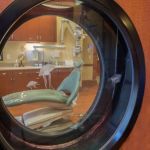How to Prevent Tooth Decay in Infants: Essential Tips for Parents
1. Understanding Tooth Decay in Infants
As a parent, one of the most important things I’ve learned is that taking care of your infant's teeth early can make a significant difference in their long-term dental health. The first few years of life are crucial for developing healthy habits that will last a lifetime. Unfortunately, many parents don't realize that tooth decay can affect even babies, starting as early as six months when the first teeth begin to erupt.
Tooth decay in infants is often caused by a condition known as "early childhood caries," which results from prolonged exposure to sugary liquids like formula, milk, or fruit juice. It can lead to painful cavities, infections, and long-term dental issues. Understanding the causes and knowing how to prevent tooth decay in your infant can help safeguard their smile as they grow.
2. The Importance of Baby's First Teeth
When my baby’s first tooth appeared, I was thrilled but also realized that taking care of that little tooth was now a priority. Baby teeth, also known as primary teeth, are incredibly important because they serve several functions: they help babies chew, speak, and even form the foundation for adult teeth. If left untreated, tooth decay in these early teeth can affect the health of the permanent teeth that will eventually replace them. That’s why it's essential to start thinking about oral hygiene from the very beginning.
Not only do primary teeth play a role in oral development, but the presence of healthy teeth can also impact a child’s overall well-being. Poor dental hygiene can lead to discomfort and difficulty eating, which can affect growth and nutrition.
3. Key Tips for Preventing Tooth Decay in Infants
3.1 Start Early with Cleaning
One of the first things I did after my baby’s teeth started to come in was to clean them properly. At this stage, cleaning doesn’t require a toothbrush. Instead, use a clean, damp washcloth to gently wipe your baby’s gums and teeth after feedings. This helps remove any milk residue, which can feed the bacteria responsible for causing tooth decay.
As your baby gets older, you can introduce a soft baby toothbrush with water and a tiny smear of fluoride toothpaste. This step helps your baby get used to brushing and prepares them for a lifelong habit of good oral hygiene.
3.2 Avoid Prolonged Bottle Feeding
One of the most important steps I took to prevent tooth decay was to avoid letting my baby fall asleep with a bottle in their mouth. Many parents don’t realize that prolonged bottle feeding, especially at night, increases the risk of cavities. When babies suck on bottles for extended periods, milk or juice can pool around their teeth, providing a perfect breeding ground for bacteria.
If your baby needs a bottle to fall asleep, try to make sure it contains only water. I found that gradually weaning off the bottle at bedtime also helped with both their dental and sleep habits.
3.3 Limit Sugary Drinks
Another piece of advice I followed was limiting sugary drinks, especially fruit juices, as much as possible. Juice, while often seen as healthy, is packed with sugar, which can cause tooth decay. I made sure to only offer water and occasionally some diluted juice, always monitoring how often my baby had it.
If your baby is old enough to drink from a cup, always supervise their beverage choices and try to avoid sugary drinks altogether. This not only helps prevent tooth decay but also establishes healthy drinking habits for later life.
3.4 Be Mindful of Teething Practices
When my baby started teething, I was cautious about what they chewed on. Teething toys are great, but they should always be clean and safe for babies to bite on. Some toys contain materials that can be harmful if chewed on too much. I made sure to choose toys that were made of non-toxic, baby-friendly materials, and regularly washed them to avoid bacteria buildup.
While teething can be a difficult time for both babies and parents, ensuring your baby chews on safe items reduces the risk of introducing bacteria that could lead to decay.
4. Regular Dental Checkups
Taking my baby for their first dental visit was an important milestone. The American Dental Association recommends that children see a dentist by their first birthday, or within six months of the eruption of their first tooth. During this visit, the dentist can assess the baby’s oral health, offer guidance on proper care, and help spot any potential issues early.
After the first visit, regular dental checkups every six months are important to ensure any problems are addressed before they become serious. I also learned that many pediatric dentists offer tips on how to make dental visits more comfortable for children, making them feel more at ease for future checkups.
5. How to Handle Cavities in Infants
Despite all efforts, sometimes cavities can still develop in an infant’s teeth. I found that if cavities are detected early, treatment can often be less invasive and more effective. It’s crucial to address cavities as soon as possible, as untreated cavities can lead to infections, pain, and more serious dental issues down the road.
If you notice signs of tooth decay such as discoloration or sensitivity in your baby’s teeth, don’t hesitate to consult a dentist immediately. Early intervention can prevent further damage and help preserve your baby’s dental health for years to come.
6. The Role of Parents in Promoting Oral Health
As a parent, it’s essential to lead by example when it comes to dental health. By modeling good oral hygiene habits, my baby will learn from me. I made it a point to regularly brush my own teeth and emphasize the importance of keeping teeth clean. As my child grows, I plan to continue guiding them in developing good dental habits, making oral care a natural part of their daily routine.
It’s also helpful to involve older children in their younger siblings' oral hygiene. In doing so, I found that it became a family affair, creating a positive environment around the importance of brushing and caring for teeth.
For more advice on keeping your infant’s teeth healthy and finding the right dental services, visit Dentistry Toothtruth for expert recommendations and clinic referrals.







 Martineau Dentistry4.0 (800 review)
Martineau Dentistry4.0 (800 review) John U Choi DDS, PhD4.0 (6 review)
John U Choi DDS, PhD4.0 (6 review) Craig Q Adams, DMD5.0 (55 review)
Craig Q Adams, DMD5.0 (55 review) Chelmsford Family Dental5.0 (22 review)
Chelmsford Family Dental5.0 (22 review) Shawnee Christian Healthcare - Dental4.0 (361 review)
Shawnee Christian Healthcare - Dental4.0 (361 review) Adelberg Montalvan Pediatric Dental - Massapequa Park4.0 (416 review)
Adelberg Montalvan Pediatric Dental - Massapequa Park4.0 (416 review) The Importance of Oral Health Education During Pregnancy for a Healthy Pregnancy
The Importance of Oral Health Education During Pregnancy for a Healthy Pregnancy Best Tips for Brushing Your Teeth Properly for Healthy Gums: Essential Techniques for Oral Health
Best Tips for Brushing Your Teeth Properly for Healthy Gums: Essential Techniques for Oral Health Why Skipping Dental Checkups Can Lead to Bigger Oral Health Problems
Why Skipping Dental Checkups Can Lead to Bigger Oral Health Problems Advantages of Porcelain Dental Restorations
Advantages of Porcelain Dental Restorations How Can Diabetes Cause Tooth and Gum Problems? Preventing and Managing Oral Health Issues
How Can Diabetes Cause Tooth and Gum Problems? Preventing and Managing Oral Health Issues Healthy Habits for Promoting Good Oral Health and Hygiene: Tips for a Healthy Smile
Healthy Habits for Promoting Good Oral Health and Hygiene: Tips for a Healthy Smile